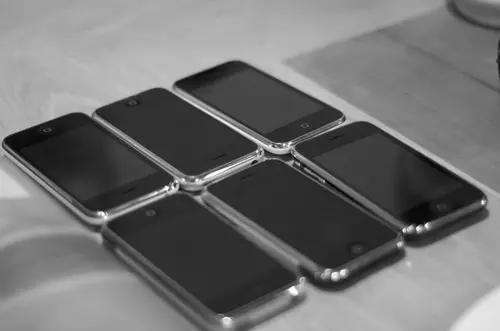
Several federal attorneys today filed a formal 51-page reaction to U.S. Magistrate Judge James Orenstein’s ruling against the government’s request to make Apple help it unlock San Bernardino shooter Syed Rizwan Farook’s iPhone. The attorneys criticized several of Judge Orenstein’s points, which were widely reported and cited by some U.S. representatives in a congressional hearing the previous week.
Judge Orenstein has been considering a separate however, related case however, weighed in because Apple was expecting the government to cite the All Writs Act in the case, just as the government has done in the case involving Farook. One of the subjects Orenstein addressed in his order was how there are still other cases of Apple devices in possession of law enforcement that would be affected by a ruling in favor of the government. That subject was a major target for the attorneys today.
The government notes, however, that much of Judge Orenstein’s reasoning appears to be driven by a forward-looking concern for preventing future government abuse. … Judge Orenstein also appears to worry that, granting the specific relief requested in this case would compel the same ruling in other courts, in other cases, despite varying facts and circumstances and the discretionary nature of All Writs Act relief. Id. at 28. These concerns go far afield of the present case, and the Supreme Court has rejected using speculation about future harm as a basis to bar relief in a specific case. There is no basis for the Court to predict that the grant of the specific relief sought in this case — which has been previously granted in dozens of cases — would open the floodgates to different relief being granted in different cases, and no reason for this Court to rely on such a prediction to limit its own well-established All Writs Act authority.
The attorneys’ rebuttal to Judge Orenstein’s order specifically applies to the case that the judge has been considering, which involves Jun Feng, a resident of Queens, New York, who was indicted on charges of meth trafficking and whose iPhone 5s was taken by U.S. Drug Enforcement Administration (DEA) agents. However, the document does call into question several of the arguments the judge made against the application of the All Writs Act, in both that case and the case of the San Bernardino shooter, when it comes to making Apple unlock an iPhone for the purposes of a law enforcement investigation.
The lawyers pointed to courts being open to using the All Writs Act on certain occasions and challenged Judge Orenstein’s decision to emphasize the lack of congressional action when it comes to expanding the government’s powers using that specific act. “To the contrary, ‘Congress can't express its will by a failure to legislate,'” they wrote. “‘The act of refusing to enact a law (if that can be called an act) has utterly no legal effect, and thus utterly no place in a serious discussion of the law.'”
And the attorneys took this response as an opportunity to state for the record that making Apple unlock an iPhone wouldn’t be an unreasonable burden on the company.
“Courts have relied on the All Writs Act to mandate third-party assistance with search warrants in circumstances far more burdensome than what is requested here,” they wrote.
While Judge Orenstein did admit that the burden wouldn’t be ‘substantial’ in this particular case, he did consider how burdensome it would be for the company to deal with several requests to unlock iPhones, and that’s where the attorneys think Judge Orenstein is making a mistake.
“Relying on unrelated applications to determine the burden posed by a particular All Writs Act application is especially troubling where no factual record has been developed regarding those other applications and the party to whom the order is addressed has conceded that the instant application would not be burdensome so long as it otherwise meets the legal standard,” they wrote.
For a full overview of the Apple-FBI case, check out our ongoing timeline.
.